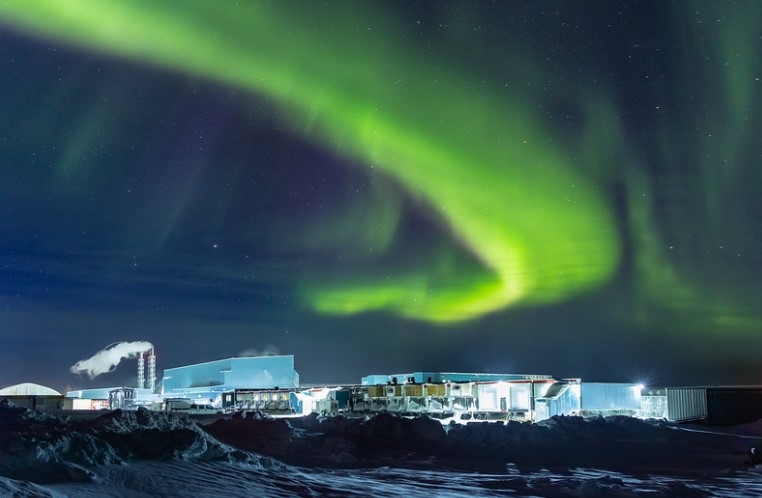Canada gives mineral-rich Arctic region of Nunavut control over its resources

Canada on Thursday formally gave the giant Arctic territory of Nunavut control over its reserves of gold, diamonds, iron, cobalt and rare earth metals, a move that could boost exploration and development.
Prime Minister Justin Trudeau signed a devolution agreement in the Nunavut capital Iqaluit with Premier P.J. Akeeagok, granting the territory the right to collect royalties that would otherwise go to the federal government.
Nunavut, a region of growing strategic importance as climate change makes shipping lanes and resources more accessible, covers 810,000 square miles (2.1 million square km) but has a population of only 40,000. An almost complete lack of infrastructure means operating costs are exorbitant.
“We can now bring decision-making about our land and waters home. It means that we, the people most invested in our homeland, will be the ones managing our natural resources,” Akeeagok said in a statement.
Challenges include harsh weather, lack of infrastructure, high costs, major social problems and a largely unskilled and undereducated Inuit aboriginal workforce.
Nunavut, created in 1999, was the only one of Canada’s three northern territories that had not negotiated devolution. Talks on the agreement started in October 2014.
Companies active in Nunavut include Agnico-Eagle Mines, operator of the territory’s only working gold mine.
Nunavut is home to some of the minerals critical for battery production. Canada has pledged billions in incentives to woo companies involved in all levels of the electric vehicle supply chain as the world seeks to cut carbon emissions.
But operating mines can be a complex affair in Nunavut, where some communities are concerned about potential pollution.
In 2022, Ottawa rejected a request by Baffinland Iron Mine Corp – part-owned by ArcelorMittal – to double production at its Mary River iron ore mine in the north of Nunavut, citing the environmental impact.
In 2020, Canada rejected Shandong Gold Mining’s bid for an indebted local gold producer amid concerns about a Chinese state-owned entity operating in the Arctic.
(By Natalie Maerzluft and David Ljunggren; Editing by Jonathan Oatis and Sandra Maler)
{{ commodity.name }}
{{ post.title }}
{{ post.date }}




2 Comments
Thomas Csathy
Lets talk about how the NIRB (Nunavut Impact Review Board) just recommended against Agnico’s Meliadine Mine extension proposal, causing the company to pull the proposal.
“It means that we, the people most invested in our homeland, will be the ones managing our natural resources”. Really? 3 of the 1 1 votes on the NIRB board are cast by members from Manitoba, Alberta, and Ontario. Why are they the ones making the decisions impacting people in Nunavut?
Bobby44
True concern Thomas. I expect this is one of the things that may change in the new arrangement. The problem that I have with this is that Nunavut does not have a group of experts to evaluate proposals. So what gets done? Maybe hire a consulting group ( lowest bidder type) to make the recommendations? It will be along time until this all works out I am sure. Regards.